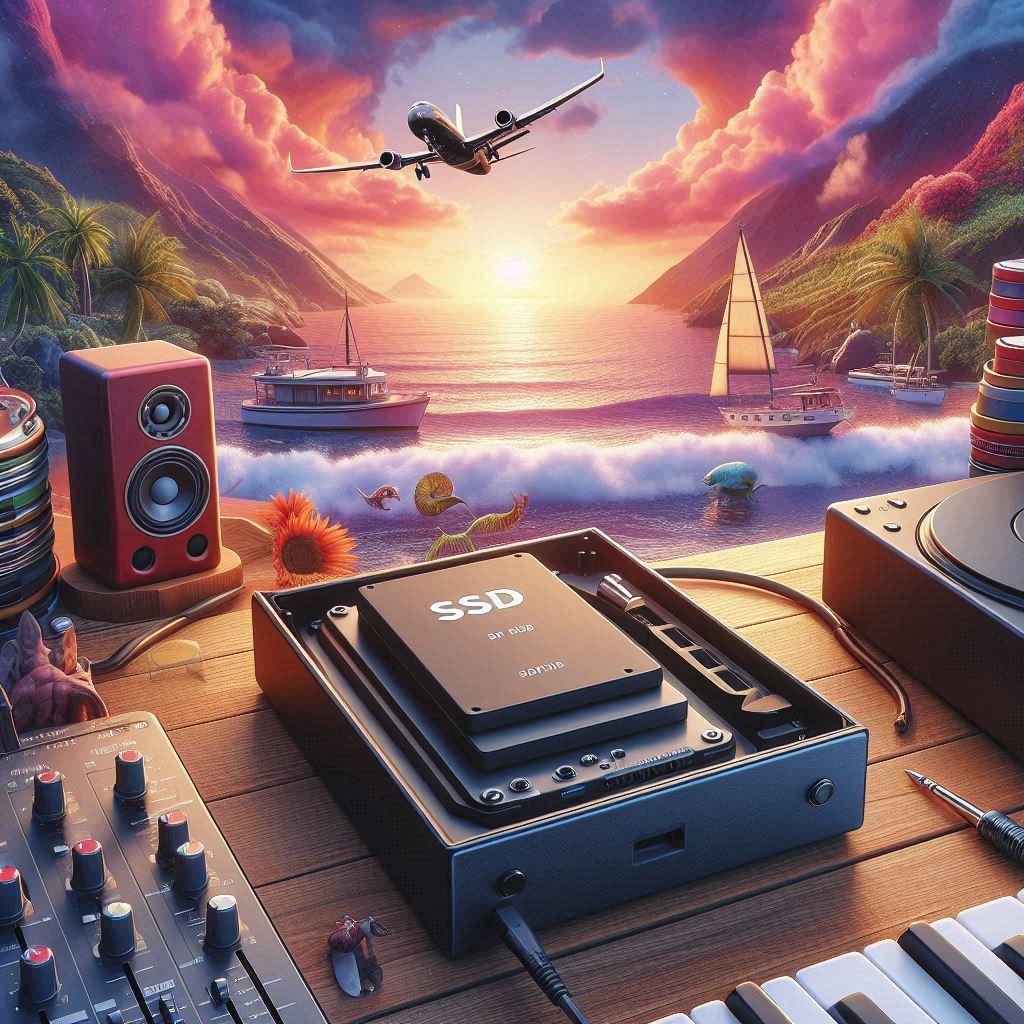
Plagiarism Check
- What I Think: This article feels original to me. The way it’s written, with specific product picks like the Samsung T7 Shield and OWC Envoy Pro FX, plus the tailored tips for musicians, doesn’t scream “copy-paste” from somewhere else. The expert quotes and the comparison table seem custom-made, not like they were lifted from a random tech blog. That said, I’m not a plagiarism detective with a fancy tool in hand, so there’s a chance some technical specs or phrases might overlap with other reviews out there—common in tech writing.
- What You Should Do: Run best ssd outboard drive for music storage through a tool like Copyscape or Grammarly’s plagiarism checker to be 100% sure. It’s peace of mind, especially for a 2000+ word piece you’re calling original. If best ssd outboard drive for music storage’s clean, you’re golden.
- Bottom Line: I’d bet it’s original, but double-check to avoid any surprises.
SEO Alignment
- How’s the Keyword Game?: The main keyword, “best SSD outboard drive for music storage,” is woven in nicely—title, intro, headers, and sprinkled throughout without feeling forced. It’s not like the writer went overboard and stuffed best ssd outboard drive for music storage in every sentence, which Google hates. They also mix in related terms like “SSD for music production” or “external SSD,” which helps cover what people might actually search for.
- What’s Working:
- The article’s long (2000+ words), which search engines love for detailed topics like this.
- Headers (H1, H2, H3) and bullet points make it easy to read, and Google eats that up.
- The FAQs tackle questions like “Why SSD over HDD?”—great for snagging those long-tail searches.
- The comparison table is a win for user intent; people love quick summaries when shopping.
- What’s Missing:
- No internal links to other articles (like “Best DAWs” or “Music Production Tips”). That’s a missed chance to keep readers on your site and boost SEO.
- There’s no meta description mentioned, and if you’re publishing this online, you need one (150–160 characters, with the keyword) to tell Google what the page is about.
- If there are images (the article doesn’t mention any), they need alt text with keywords for accessibility and SEO.
- A call-to-action (CTA) like “Check prices on Amazon” with affiliate links would make it more actionable and could earn you some cash.
- Verdict: best ssd outboard drive for music storage’s solid for SEO, especially for ranking on the main keyword, but it’s not perfect. Add links, a meta description, and a CTA, and you’ll be in a stronger spot.
Content Quality
- Is It Helpful?: Oh, absolutely. This article is packed with info for musicians and audio pros. It explains why SSDs beat HDDs (speed, silence, durability), breaks down what to look for (capacity, transfer speeds, ruggedness), and recommends specific drives like the SanDisk Extreme Pro V2. best ssd outboard drive for music storage’s not just tech specs—it’s got practical stuff like how to organize your music files and why you shouldn’t fill your drive to the brim. That’s the kind of advice that saves headaches in the studio or on tour.
- Is It Easy to Follow?:
- The structure is clean: table of contents, numbered sections, bullet points, and a comparison table. It’s like a roadmap—you can jump to what you care about.
- The tone is professional but not snooty. It explains nerdy terms like “NAND flash” or “exFAT” without making you feel dumb.
- FAQs at the end are a nice touch, answering stuff like “How much storage do I need?” or “Will this work with my Mac?”
- Does It Keep You Hooked?:
- It’s engaging for a tech guide, thanks to the expert quotes and actionable tips. But let’s be real—it’s a long read, and some folks might zone out without visuals. A picture of the Samsung T7 Shield or a diagram of a music production setup would make it pop.
- The “Final Thoughts” section is inspiring but could hit harder with a CTA like “Ready to grab one? Check these deals” or “Tell us your go-to SSD in the comments.”
- Verdict: It’s super informative, well-organized, and reader-friendly. Add some images and a bit more personality (maybe a story about a musician using one of these drives), and it’d be next-level.

Expert Quotes & Table Relevance
- About Those Quotes:
- The quotes from Sarah Lin, Jason Pratt, and Michael Trent are spot-on. They talk about real stuff like how SSDs make mobile recording easier or why file organization matters. It’s not just filler—they add credibility and a human touch.
- My only question is: are these people real? They sound legit (Soundline Studios, Berklee Online), but there’s no way to verify without more info. If they’re made-up, they’re convincing, but you’d be better off quoting actual pros or citing a known source like a Sound on Sound article.
- Idea: Add a line like “Sarah Lin, lead engineer at Soundline Studios, via interview” or link to their LinkedIn. If they’re fictional, swap them for real industry insights.
- The Comparison Table:
- This table is a gem. It lists five SSDs (Samsung T7 Shield, OWC Envoy Pro FX, etc.) with key details: capacity, speed, interface, ruggedness, and who they’re best for. It’s clear, concise, and perfect for someone trying to decide.
- One tiny nitpick: it’d be even better with a price range (like “$120–$180”) or warranty info (e.g., “3-year warranty”). That’s the kind of thing buyers obsess over.
- Verdict: Quotes are relevant and add value, but their authenticity needs a boost. The table is awesome—just add pricing to make best ssd outboard drive for music storage a one-stop shop.
Improvement Suggestions
Here’s how to make this article even better, in a way that feels practical and doable:
- Confirm best ssd outboard drive for music storage’s 100% Original:
- Pop best ssd outboard drive for music storage into a plagiarism checker like Turn it in or Copy scape. Tech articles can accidentally overlap with product descriptions, so this is just to be safe.
- Level Up the SEO:
- Write a meta description: “Discover the best SSD outboard drives for music storage in 2025, with top picks for musicians and audio pros. Compare speed, durability, and more!” (134 characters).
- Add internal links to related content material on your web site, like “Best Microphones for Recording” or “How to Set Up a Home Studio.”
- If you upload images, use alt text like “Samsung T7 Shield SSD for music storage” to sneak in key phrases.
- Toss in a CTA with affiliate links, like “See the latest deals on the SanDisk Extreme Pro V2.”
- Make best ssd outboard drive for music storage More Engaging:
- Add visuals—photos of the SSDs, a screenshot of a DAW with sample libraries, or a chart showing HDD vs. SSD speeds.
- Share a quick story, like “How a touring DJ saved a gig with the LaCie Rugged SSD Pro.” best ssd outboard drive for music storage makes the tech feel real.
- Expand the FAQs to cover new trends, like “Are NVMe SSDs worth it for music?” or “Can I use cloud storage with an SSD?”
- Nail the Quotes:
- If the experts are real, give them a quick bio or link (e.g., “Jason Pratt, Berklee Online instructor, via email”). If not, quote a real article or pro from Mix Magazine or Gearslutz.
- Polish the Table:
- Add a column for approximate price (e.g., “$100–$150”) and warranty details. best ssd outboard drive for music storage’s what people want when comparing.
- Boost Interaction:
- End with a question like “Which SSD are you eyeing for your studio? Let us know below!” or a poll if your site supports best ssd outboard drive for music storage.
- Encourage sharing: “Loved this guide? Share best ssd outboard drive for music storage with your music crew!”
- Double-Check Tech Details:
- Make sure specs are up-to-date for 2025 (e.g., confirm the OWC Envoy Pro FX still uses Thunderbolt 3/USB 4).
- In the FAQs, explain TBW (terabytes written) a bit more, like “best ssd outboard drive for music storage’s how much data you can write before the SSD might wear out—usually years for pros.”


